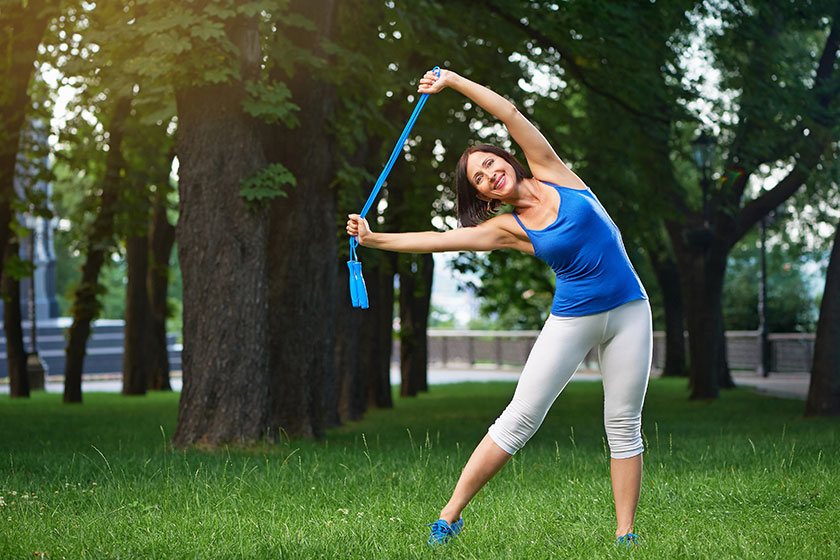Staying active is vital for health and well-being as we grow older. Unfortunately, misconceptions surrounding morning exercise for seniors often prevent many from enjoying its full advantages. Concerns about joint pain, energy levels, and safety are common, but it’s important to address these myths and reveal the reality.
Morning Exercise is Too Hard on Joints
One of the most common concerns among seniors is that exercising in the morning might be too hard on aging joints. While it’s true that stiffness can occur upon waking, gentle movement is one of the best ways to alleviate this discomfort. Low-impact activities such as walking, swimming, or yoga help improve flexibility and joint health over time. By incorporating morning exercise, seniors can increase their range of motion and reduce inflammation, which may even help with conditions like arthritis.
Regular, gentle movement can lubricate joints and improve overall flexibility, making morning exercise beneficial rather than harmful.
Seniors Should Avoid High-Intensity Morning Workouts
Another misconception is that high-intensity morning workouts are dangerous for seniors. While it’s true that seniors should exercise caution and listen to their bodies, high-intensity workouts—when done appropriately—can offer a wealth of benefits. Interval training, for example, can be modified to suit different fitness levels and has been shown to improve cardiovascular health, increase endurance, and boost metabolism.
Seniors can safely engage in high-intensity exercise by adjusting the intensity and duration to match their fitness level, making it a healthy part of their morning routine.
Morning Exercise is Exhausting for Seniors
Some seniors worry that starting their day with exercise will leave them feeling drained and fatigued. On the contrary, exercise helps boost energy levels and improve mood. Morning exercise releases endorphins, the body’s natural “feel-good” chemicals, which can leave seniors feeling more energized and positive throughout the day.
Morning exercise helps boost energy, improve mood, and increase focus, providing a refreshing start to the day rather than exhaustion.
Seniors Need to Exercise for Hours to See Benefits
There’s a myth that you need to spend long hours working out to experience any real health benefits. In reality, even short bursts of physical activity can make a difference. According to health experts, 20 to 30 minutes of moderate exercise in the morning is enough to promote cardiovascular health, improve mobility, and reduce the risk of chronic illnesses like diabetes or heart disease.
You don’t need to spend hours working out. Short, consistent morning exercise sessions provide significant health benefits for seniors.
It’s Unsafe for Seniors to Exercise Alone in the Morning
Safety concerns often prevent seniors from exercising alone, particularly in the morning. While it’s important to take precautions, such as warming up properly and staying hydrated, morning exercise can be perfectly safe with the right plan in place. Seniors can opt for low-impact, home-based exercises or attend group fitness classes designed for older adults. Walking in familiar, well-lit areas can also provide an easy way to incorporate exercise into a morning routine without compromising safety.
Seniors can safely enjoy morning exercise by taking simple precautions like warming up, staying hydrated, and choosing safe environments for activity.
Morning Exercise Isn’t Necessary If You’re Active Later in the Day
Some believe that if they’re staying active throughout the day, morning exercise isn’t necessary. While any form of physical activity is good, exercising in the morning offers unique benefits. It helps jumpstart the metabolism, sets a positive tone for the day, and improves mental clarity. For seniors, starting the day with exercise can also help establish a routine, reduce stress, and promote better sleep at night.
Morning exercise offers unique benefits, including improved mental clarity, better mood, and a more structured routine, all of which are especially helpful for seniors.
It’s Dangerous for Seniors with Health Conditions to Exercise in the Morning
Some seniors with health conditions, such as high blood pressure or diabetes, might feel that morning exercise could worsen their condition. However, research suggests that, under a doctor’s supervision, exercise can be part of an effective management plan for many chronic conditions. Regular morning exercise can help regulate blood sugar, lower blood pressure, and improve overall heart health. Seniors with health concerns should consult their healthcare provider before starting any new exercise routine to ensure it’s tailored to their needs.
When done with proper medical guidance, morning exercise can help manage chronic health conditions, improving overall well-being.
Seniors Shouldn’t Push Themselves in Morning Workouts
There’s a common myth that seniors should avoid pushing themselves physically. While it’s important to avoid overexertion, it’s equally important to challenge the body within safe limits. Moderate resistance training, for instance, can help build muscle strength, improve bone density, and maintain balance, all of which are vital for aging bodies. Incorporating resistance bands or light weights into morning workouts can yield great results without overwhelming the body.
Seniors benefit from gradually challenging themselves through moderate strength and resistance training, which promotes bone and muscle health.
The Truth About Morning Exercise for Seniors
Morning exercise can be an excellent way for seniors to enhance flexibility, boost energy, and maintain overall health. At our retirement community, we offer a range of programs that make morning exercise both accessible and enjoyable. From low-impact aerobics to group fitness classes, we provide a safe and supportive environment for all fitness levels.
Whether you’re new to morning workouts or looking to enhance your routine, we’re here to support your wellness journey. Contact us today to learn more about our fitness offerings and how we can help you stay active.







